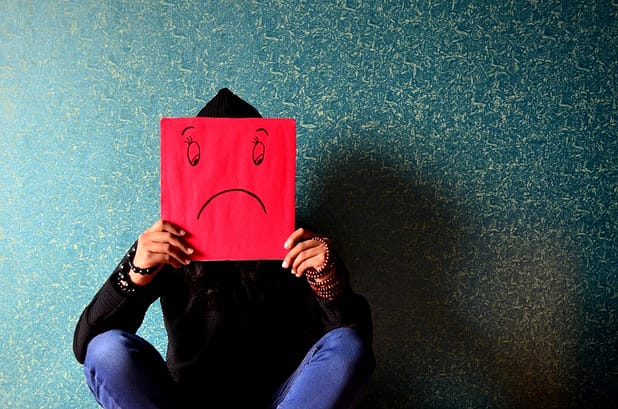
How many of you have heard or been told at some point in the span of your career, “it’s just business” or, another favorite, “it’s not personal”? Have you ever walked away slightly perplexed by this seemingly innocuous statement, one that somehow seems like just another day within American working society? While it may seem like nothing, I would argue that this and other trends are acute warning signs of a society in deep imbalance and moral crisis, compounded by and perpetuating the very real threats of climate change, chronic illness, divisiveness, and debt. We are actually gaslighting ourselves into apathy.
Granted we have had many alarm bells ringing in recent years. Things are reaching a boiling point. To address it requires systemic change, which also means looking at ourselves and the ways we and our organizations perpetuate an imbalanced society. We have to assess the ways in which we live our lives and do business, and determine, then act on, what we truly value. I’m not anti-business, anti-capitalism, or anti-much of anything unless it stands in opposition to what the evidence-base presents as necessary for a healthy and balanced society. I own my own business, have a 401k, and shop at big brand stores, like Whole Foods. What’s happening, however, is the result of taking capitalism (and consumerism) too far and without regard to the very real human nature and priceless value of people and our environment (from here forward referred to as “communities,” both human and ecological).
Denying Ourselves Our Humanity
To be sure when someone says “it’s just business” or “it’s not personal” they are trying to soften the blow, usually to themselves to avoid thinking too hard about the ramifications. It’s so commonplace as to be an unconscious throw away statement. But saying this also immediately devalues the experience of a person or whole communities who are impacted by decisions.
In that devaluation is a dehumanization that places the capitalistic success of the enterprise over the long-term health and well-being of communities. Take a look also at the trends around reality television and “building your brand”. Everyone has to be unique, to standout, and to show how what they offer is somehow better than what everyone else brings to the table. We are turning ourselves, our very lives, into commodities to be bought and sold; placing a price tag on what should seemingly be priceless. We glorify differences and individualism, rather than our commonalities and shared struggles. Who’s to say that’s not at least partially to blame for America’s current state of divisiveness?
An Ideological Shift
The mistake we’ve made is ignoring that people are not commodities, communities are not static places from which to extract resources, and no matter how much money a business makes or how much people own, our success as a society will not be achieved through bottom-line revenues, the stock market, or the global domestic product alone but on the ways in which we value our communities. I would also argue that the stock market and GDP will increasingly reflect the influence of younger generations on industry to move toward value-based decisions, because these are facts that these generations, who are ideologically more communitarian, already know.
This ideological shift seen in Millennials is likely due to 1) rising student loan debt, 2) the 2008 economic downturn, 3) rapid technological innovation with increased connection to and awareness of people and events globally, and 4) numerous scientists raising the alarm on climate change. According to Ms. Bovino, Standard & Poor’s U.S. chief economist at the time of a 2015 economic report, “two thirds of GDP is consumption, so we rely on people spending money” yet Millennials aren’t consuming at the rates seen in recent generations and they are by far more fiscally conservative. A 2014 national report on Millennials also revealed the ideological changes coming into play as this generation has reached adulthood, showing that Millennials place a high value on contributing meaningfully to society and having close ties with family and friends. Yet there is a clash at play between “business as usual” and the aspirations and values of this generation, which we can see playing out in the news, social media, and in our communities, such as the student-led walkouts and climate strikes happening today to call for action on the climate crisis.
Rising Rates of Depression, Anxiety, and Suicide
Couple the importance placed on community values and quality of life with a marked dissonance in what our consumer-driven society values and how it has been built to operate, and also an increase in near-immediate access to information on societal events and disturbances, and is it any wonder we see rising rates of depression, anxiety, social isolation, and suicide, especially among youth?
In Kansas City, where I serve as a health commissioner, we have health professionals sharing that kindergartners are showing signs of suicidal ideation. These are symptoms of a society in deep imbalance and moral crisis. We move through society increasingly denying ourselves the basic requirements of our humanity – social connectedness, belonging, and a sense of value and purpose. And we have more information about what’s going on in the world than we ever have before (whether real or fake).
Some researchers suggest that the increase in youth mental health issues is correlated with an increase in technology use (e.g. social media, smart phones, etc.). However, what aspect of technology use this is correlated with has not, to my knowledge, been studied. I would argue it’s not the technology use alone but the type of interactions and information experienced by youth, including cyber bullying, news of climate threats, violence against people of color, and international upheaval, which previous generations did not have immediate, widespread access to.
This access and connectedness are both a weakness and a strength. Is there anything more debilitating than hearing of communities destroyed by flooding or of school shootings, but feeling as though very little can be or is being done? Information without a way to meaningfully engage or act is crippling. Signing an online petition is a feel-good action but it isn’t enough. We need to use that access and that connectedness to not only share information but provide the means to act meaningfully and intentionally.
Forces of Change
We try to fill our needs in a shallow consumer-driven society by hashtagging ourselves to fit in and stand out, but the promises of this system inevitably fall short and leave us empty. It turns out money, fame, and consuming “things” and “experiences” aren’t the keys to happiness and well-being. Many of us know that yet it’s near impossible to be a completely conscious consumer or to avoid participating in a broken system, and so the cycle continues, unceasing, until enough people raise their voice, take action, and policy changes. And for those who are among the “have-nots,” the inability to obtain these status symbols or to identify a sense of value and purpose can be its own special kind of hell. These experiences physically change a person and whole communities.
When we use language and behave in ways that communicate people are only of value to the degree to which they contribute to capitalistic consumerism (or are part of a politically and socially-accepted group), we are inadvertently telling them that their very lives don’t matter. We don’t want to enact stricter gun laws because we want to make a profit on guns and arming communities. This matters more than children dying. We don’t want to participate in meaningful global partnerships on climate change or take action to mitigate this crisis, because our campaign donors have stock in fossil fuels and this is more important than ensuring our children and grandchildren can survive comfortably in the world. We don’t want to stand up to racist leaders because party lines and campaign donors are more important than stabilizing our society and making it a country in which people can thrive regardless of the color of their skin.
The signs that we have placed too heavy a value on consumption and the bottom line at the expense of our communities are everywhere. Thankfully, as we are seeing today in the climate strikes, there are people working to change these realities, and we need to in order to effectively address the threats of climate change, chronic illness, social and cultural divisiveness, and hate.
In an era where anxiety and stress levels are at an all-time high, remember this:
- People came up with the system we have, people can come up with other solutions, too. We aren’t beholden to an elite class of decision-makers, and if we wait on those decision-makers to change things, we’ll be waiting a very long time. We need to be the solution we are looking for.
- People and things only have as much power as we give them. If we start giving ourselves and our communities power, and start remembering their true value, we will inevitably shift the locust of power to where it needs to be.
- Arguably, we are currently teetering on the brink of several possible realities – one of greater authoritarianism and one of greater communitarianism. Throw in climate change and who’s to say how that will alter our political and social realities. Awareness, meaningful action, and balance at all levels are needed to keep the pendulum from swinging too far, and it’s up to us as a society to determine the world we want to live in and the world we want to leave for our families.
- Capitalism isn’t “bad” nor is being a consumer, but this needs to be balanced with actions that account for human and environmental needs and limits. Today’s way is not the only way, and it’s certainly not “just business.” When it impacts our communities, it is personal because it impacts us personally. Discounting that is morally reprehensible, irresponsible, and drives us toward greater social isolation and apathy.
- Communities are actively working to enact change. Seek out groups of people who are engaged in the community and contribute in whatever way you are able. Every person (and every organization) can do something, whether it’s seriously reviewing and changing internal operations policy and company mission, talking to your city council, or joining a climate strike. If you have opportunities available, please share them with others. You never know who may need something as simple as an invitation.
What other warning signs have you witnessed and how are you or your community contributing to the change our society needs?
